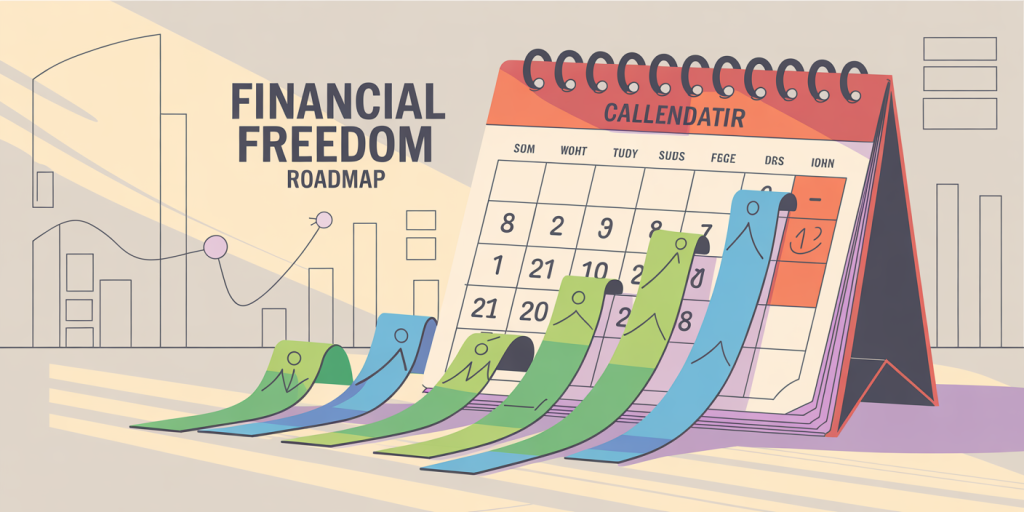In today’s fast-paced world, money management is often overlooked, leading to financial stress and missed opportunities. Setting aside dedicated time each month for a “money date” with yourself can transform your financial habits, boost your confidence, and promote long-term wealth accumulation. This article explores why scheduling a monthly financial check-in is critical, how to structure your money date, and the tangible benefits it can bring.

The Concept of a Money Date: More Than Budgeting
A money date is a planned, uninterrupted session where you review your financial situation, evaluate goals, and adjust strategies. Unlike hurried monthly bill payments or random account check-ins, a money date is intentional. It allows for a comprehensive view of your finances and fosters accountability.
For example, Sarah, a 32-year-old marketing manager, used to informally check her bank account but felt anxious about her debt and savings. After committing to a 60-minute money date every month, she developed clearer spending habits, reduced unnecessary expenses by 15% within three months, and saw her emergency fund grow. This routine empowered her to make informed decisions, illustrating the transformative power of consistent financial self-assessment.

Why Consistent Financial Check-Ins Matter
Research shows that people who regularly review their finances are more likely to achieve their financial goals. According to a 2023 survey by the National Endowment for Financial Education (NEFE), 68% of individuals who track their expenses monthly experience lower levels of financial stress compared to those who do not. The act of reviewing finances heightens awareness and reduces the likelihood of impulsive spending.
Regular financial check-ins help detect discrepancies such as fraudulent transactions or unwanted subscriptions early. For example, John, a freelance graphic designer, spotted a $30 monthly charge on his credit card during his money date that was never authorized. Canceling the service saved him $360 annually. This vigilance improves security and optimizes spending efficiency.
How to Structure Your Monthly Money Date for Maximum Impact
The effectiveness of a money date lies in its consistency and structure. Ideally, choose the same day each month—such as the 1st or 15th—to build a habit. Set aside at least 30 to 60 minutes in a distraction-free environment.
Begin by reviewing your bank and credit card statements, highlighting unusual or recurring expenditures. Next, assess your budget performance: Did you overspend or underspend? Adjust future budget allocations accordingly. If you use budgeting apps like Mint or YNAB (You Need A Budget), integrate their reports in this review for data-backed insights.
Following this, evaluate your progress on savings goals such as retirement contributions, emergency fund growth, or debt repayment. For instance, if your target is to pay off $5,000 in credit card debt within 12 months, track whether you are on pace or need to increase payments.
Finally, set financial intentions for the coming month—whether that’s reducing discretionary spending, increasing income, or learning about investment options. Document these intentions and revisit them at the next money date.
Sample Monthly Money Date Agenda
| Time Allocation | Activity | Purpose |
|---|---|---|
| 10 minutes | Transaction Review | Identify errors and track expenses |
| 15 minutes | Budget Analysis | Compare spending to planned budget |
| 15 minutes | Goal Progress Check | Measure progress in savings/debt |
| 10 minutes | Planning & Setting Intentions | Create actionable financial goals |
| 10 minutes | Education or Research | Read articles or watch videos on finance |
This structured approach provides clarity, focus, and direction for ongoing financial management.
Overcoming Common Barriers to Financial Self-Review
Many people hesitate to conduct money dates due to fear of confronting financial reality, perceived lack of time, or uncertainty about what to review. However, avoiding money conversations often leads to poor financial outcomes. The key lies in reframing the money date as an empowering experience rather than a stressful chore.
To address time constraints, initially limit your money date to 15-20 minutes, gradually increasing as comfort grows. For example, Lisa, a busy single parent, started with five-minute check-ins, focusing on only essential items like bills and savings, and expanded the sessions as she developed confidence.
If financial literacy is a concern, use the money date as an opportunity to learn. Trusted websites like Investopedia or resources from the Consumer Financial Protection Bureau offer beginner-friendly lessons. Engaging with a financial advisor or participating in online workshops can also build competence over time.
Real-Life Success Stories Highlighting the Power of Money Dates
Several individuals have publicly shared how monthly money dates changed their financial trajectory. Michelle, a teacher from Ohio, struggled for years with credit card debt. By dedicating one hour each month to review expenses, set incremental debt payoff goals, and refine her budget, Michelle paid off $12,000 in two years. She credits the routine for creating accountability and reducing financial anxiety.

Similarly, Marcus, a software engineer, used his money dates not just to review finances but also to explore investment opportunities. After attending a financial literacy webinar, he began allocating a small portion of his income to ETFs and monitored growth during money dates. Within five years, these investments appreciated by 35%, fundamentally changing his wealth outlook.
These stories underscore how regular self-engagement promotes financial discipline and opens pathways to wealth creation.
The Psychological Benefits of a Monthly Money Date
Money is strongly tied to emotions, including anxiety, guilt, and confidence. Scheduling a predictable session to review your finances reduces the emotional burden associated with unknown or overwhelming money problems. The act of organizing your financial life enhances your sense of control.
A study published in the Journal of Financial Therapy in 2022 revealed that individuals practicing monthly financial reflection experienced a 40% decrease in financial stress and an increased sense of well-being. Building this habit fosters mindfulness—encouraging you to consciously decide how to use your money in alignment with your values.
Importantly, money dates also promote gratitude by highlighting progress. Tracking savings growth or debt reduction visually reassures you of positive change, fueling motivation to continue.
How Technology Can Amplify Your Money Date Experience
Modern technology offers an array of tools making money dates more effective and less time-consuming. Personal finance apps with dashboard features can consolidate bank accounts, credit cards, loans, and investments for a holistic view. For example, as of 2024, Mint has over 20 million users who rely on it to automate tracking and budgeting.
Banks increasingly offer built-in financial wellness tools that analyze spending by category and alert you about upcoming bills. Using alerts during your money date prevents missed payments and helps adjust budgets proactively.
Some people integrate spreadsheets and customizable templates into their sessions, which provide flexibility. Here’s a comparative summary of popular tools for monthly money dates:
| Tool | Features | Best For | Cost |
|---|---|---|---|
| Mint | Expense tracking, budget setting | Beginners, all-in-one tool | Free |
| YNAB (You Need A Budget) | Goal-oriented budgeting, debt payoff tracking | Active budgeters | $14.99/month or $99/year |
| Personal Capital | Investment tracking, net worth dashboard | Investors, retirement planning | Free |
| Excel Spreadsheets | Customizable, manual data entry | Experienced users | Varies by license |
Aligning technology with your money dates enhances accuracy and frees time for analysis over data gathering.
Future Perspectives: Evolving Your Money Dates for Financial Growth
Starting with basic budgeting and expense tracking is a great first step, but money dates should evolve as your financial situation changes. Over time, deepen the scope to include investment reviews, tax planning, insurance evaluations, and estate planning components.
For instance, as income grows, your money date might incorporate portfolio rebalancing or exploring tax-advantaged retirement vehicles such as Roth IRAs or 401(k) plans. As family or lifestyle shifts occur, reassessing insurance coverage during these sessions becomes vital.
Furthermore, money dates can expand into financial education goals—such as reading a book on investing or attending seminars to build wealth literacy. Incorporating quarterly or yearly financial check-ins with professionals can complement monthly self-reviews.
The future of personal finance emphasizes proactive management rather than reactionary responses. The habit of a monthly money date ensures you remain engaged and flexible, prepared for both challenges and opportunities.

Deixe um comentário